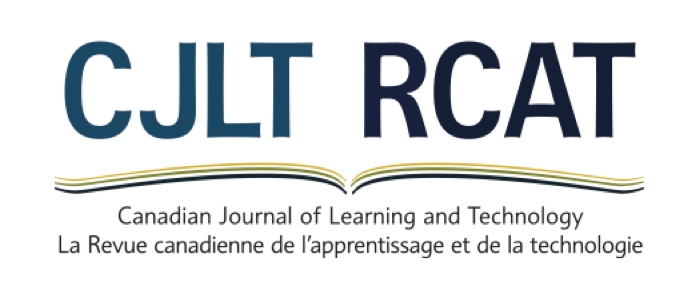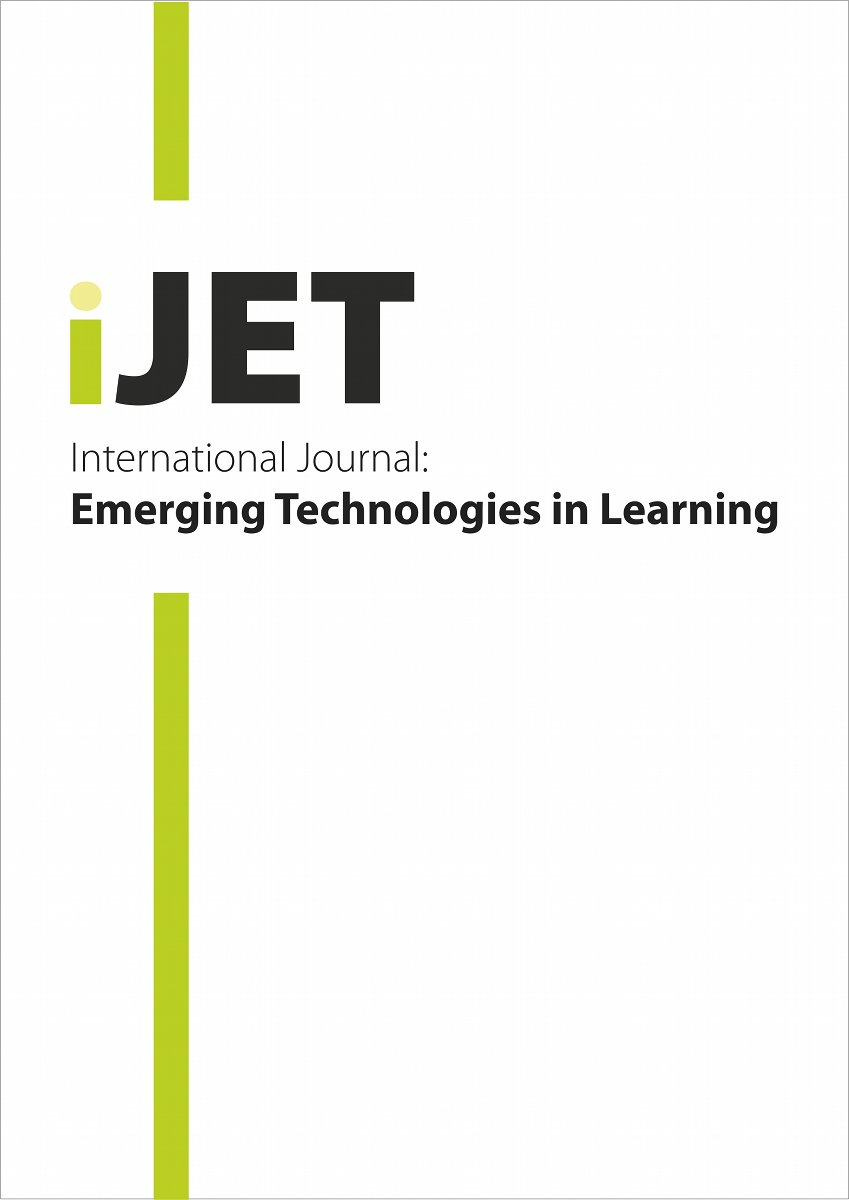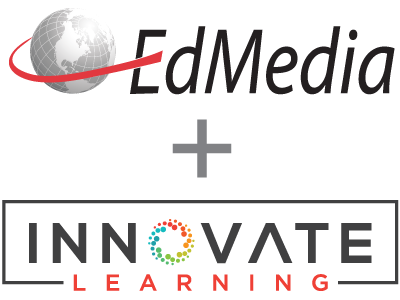Browsing by Subject: Secondary Education
-

Shifting Views: Exploring the Potential for Technology Integration in Early Childhood Education Programs
Beverlie Dietze & Diane Kashin
Canadian Journal of Learning and Technology / La revue canadienne de l’apprentissage et de la technologie Vol. 39, No. 4 (Dec 21, 2013)
Using technology with children in play-based early learning programs creates questions for some within the Early Childhood Education (ECE) community. This paper presents how two faculty who teach... More
-
Factors influencing the use of computer mediated communication by teachers in secondary schools
Johan van Braak
Computers & Education Vol. 36, No. 1 (2001) pp. 41–57
In this article, a survey on the factors influencing the use of computer mediated communication (CMC) by teachers in secondary schools in Brussels is described. The survey compared a group of CMC... More
pp. 41-57
-
Advantages, disadvantages, facilitators, and inhibitors of computer-aided instruction in Singapore's secondary schools
Pien Wang & Pui San Chan
Computers & Education Vol. 25, No. 3 (1995) pp. 151–162
The Republic of Singapore initiated a project titled a Student's and Teacher's Workbench in secondary schools in 1993. The project planned to use computer-aided instruction (CAI) for enhancing... More
pp. 151-162
-
Computer attitudes in an English secondary school
S. Ian Robertson, Judith Calder, Pat Fung, Ann Jones & Tim O'Shea
Computers & Education Vol. 24, No. 2 (1995) pp. 73–81
Recent research has shown that there are consistent differences between males and females and between students and teachers in their attitudes towards computers. Specifically they reveal that there... More
pp. 73-81
-
Timetabling in Hong Kong secondary schools
Lam-For Kwok, Siu-Cheung Kong & Ying-Yu Kam
Computers & Education Vol. 28, No. 3 (1997) pp. 173–183
A high quality timetable in a school can reduce grievances of the teaching force and enhance teaching quality. This survey aims to understand the scope of the timetabling exercise and the profile... More
pp. 173-183
-
A longitudinal study of the use of student-owned portable computers in a secondary school
Paul Newhouse & Leonie Rennie
Computers & Education Vol. 36, No. 3 (2001) pp. 223–243
During the 1990s a significant development in computer technology has been the emergence of low-cost, high-powered portable computers. This has encouraged a number of schools to experiment with... More
pp. 223-243
-
Shift happens: online education as a new paradigm in learning
Linda Harasim
Internet and Higher Education Vol. 3, No. 1 (2000) pp. 41–61
This article addresses that paradigmatic shift. It begins by presenting an overview of the history of online education as a context and framework for understanding the state of the art today,... More
pp. 41-61
-

The Influence of Secondary School Education on the Success of Informatics Education in University
Marina ?i & Slavomir Vukmirovi?, Faculty of Economics, University of Rijeka, Ivana Filipovi?a 4, 51000 Rijeka; Marko ?i, Kvarner Banka/IT Department, 51000 Rijeka
International Journal of Emerging Technologies in Learning (iJET) Vol. 3, No. 2008 (Jul 16, 2008)
The suppositions and dimensions of the influence of secondary school education on the quality and effects of informatics education in University are manifold. The influence of secondary school... More
-

Synchronous Online Discourse in a Technology Methods Course for Middle and Secondary Prospective Mathematics Teachers
Tina Starling & Hollylynne Lee, NC State University, United States
Contemporary Issues in Technology and Teacher Education Vol. 15, No. 2 (June 2015) pp. 106–125
The authors present examples of analysis of online discourse and interactions among prospective middle-grades and secondary mathematics teachers in a technology methods course. The online group met... More
pp. 106-125
-

E-Learning in Higher Education – Opportunities & Challenges for Dubai
Theophilus K. Gokah, The Mena Institute, United Arab Emirates; Namrata Gupta, University of Wollongong, United Arab Emirates; Esinath Ndiweni, Herriot Watt University, United Arab Emirates
International Journal on E-Learning 14 (2015) pp. 443–470
E-Learning is becoming a popular delivery method across various universities and colleges in Dubai as the region is experiencing a rapid growth of e-Learning in higher education. Adequate... More
pp. 443-470
-

Perceptions of Pre-service English Teachers towards the Integration of an LMS into English Language Teacher Education
Ahmet Basal, Yıldız Technical University, Turkey
Journal of Technology and Teacher Education Vol. 23, No. 4 (October 2015) pp. 485–507
With the growing availability of educational technologies, informing future teachers about the use of such technologies in their classrooms has become essential, particularly for language teachers.... More
pp. 485-507
-

Flipped Classroom in a High School Health Class
Li-Ling Chen, California State University at East Bay, United States
EdMedia + Innovate Learning 2015 (Jun 22, 2015) pp. 1150–1155
As advanced technology increasingly infiltrated into classroom, the flipped classroom has come to light in secondary educational settings. The flipped classroom is a new instructional approach that... More
pp. 1150-1155
-

An Investigation into Teacher’s Competence on Information Communication and Technologies (ICT) and Availability of E-Learning Resources in the Teaching of Mathematics in Secondary Schools
Olusesan Adeyemi Adelabu & Emmanuel Olusola Adu, University of Fort Hare, South Africa
EdMedia + Innovate Learning 2015 (Jun 22, 2015) pp. 882–889
Though it has been rightly said that what is wrong with education cannot be fixed with technology; there is no doubt that modern life is dominated by technology. This study therefore examines the... More
pp. 882-889
-

Effects of Excessive Usage of Social Networking onStudents Learning Habit
Sunday Oyemi, Adeniran Ogunsanya College of Education, Department of Educational Foundations, Otto Ijanikin, Lagos, Nigeria; Aok Noak, Lagos State University, Department of Educational and Counselling Psychology, Ojo, Lagos Nigeria., Nigeria; Eunice Eyitayo Olakanmi, University of South Africa, South Africa
EdMedia + Innovate Learning 2015 (Jun 22, 2015) pp. 523–531
This research examines the effect of excessive usage of social networking sites on secondary school students’ learning habits. The study was conducted using a descriptive survey research method and... More
pp. 523-531
-

How Video Games and Digital Literacy Impacts Student Attainment and Development: An Analysis of Synergistic Integration
Mario Adkins, Aquinas College, United States
E-Learn: World Conference on E-Learning in Corporate, Government, Healthcare, and Higher Education 2015 (Oct 19, 2015) pp. 1–5
Research has found that video games can boost technical, kinetic, social and linguistic skills in students. Furthermore, cognitive skills such as memory, reaction speed and mental processing... More
pp. 1-5
-

Bridging the Gap - Trade Math MOOC project
Dalton Mervold & Dennis Johnson, Saskatchewan Polytechnic, Canada
E-Learn: World Conference on E-Learning in Corporate, Government, Healthcare, and Higher Education 2015 (Oct 19, 2015) pp. 1533–1536
This paper is an overview of a project that was designed to assist students preparing to enter post-secondary education. For years we have noticed that students enter our programs that have a... More
pp. 1533-1536
-

E-Learning Acceptance by Secondary Schools Educators in South Africa
Tlou Kabe, Billy Kalema & Ignitia Motjolopane, Tshwane University of Technology, South Africa
E-Learn: World Conference on E-Learning in Corporate, Government, Healthcare, and Higher Education 2015 (Oct 19, 2015) pp. 1326–1331
This paper presents e-learning acceptance by South African secondary schools educators. The study was informed by data collected from schools in the Tshwane District of Gauteng province in South... More
pp. 1326-1331
-

Predicting the Adoption of Video Podcast in Online Health Education: Using a Modified Version of the Technology Acceptance Model (Health Education Technology Adoption Model HEDTAM)
Sherry Grover, Destiny Group, United States
E-Learn: World Conference on E-Learning in Corporate, Government, Healthcare, and Higher Education 2015 (Oct 19, 2015) pp. 1100–1104
Online Health Education curriculum includes teaching courses to adult learners that pertain to chronic illnesses. With further investigation on the topic in this preliminary study, the researcher... More
pp. 1100-1104
-

A Physics Class Model that Predicts Student Performance
Muhammad Riaz & Elsa Sofia Morote, Dowling College, United States
E-Learn: World Conference on E-Learning in Corporate, Government, Healthcare, and Higher Education 2015 (Oct 19, 2015) pp. 897–902
The purpose of this study was to examine how simulations in physics class, student engagement, critical thinking, cooperative learning, and use of simulations predict students 'performance as... More
pp. 897-902
-

Pre-service teacher ICT skill-set: Not a simple issue
Kathy Jordan, RMIT University, Australia; Leanne Compton, Victorian Curriculum and Assessment Authority, Australia
E-Learn: World Conference on E-Learning in Corporate, Government, Healthcare, and Higher Education 2015 (Oct 19, 2015) pp. 799–806
For some time, a consistent theme in Teacher Education has been that graduates lack the necessary skill-set to use ICT in their practice. In Australia, the recent implementation of national... More
pp. 799-806
